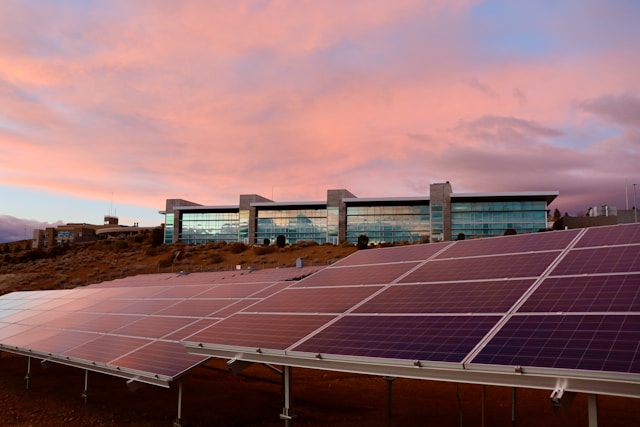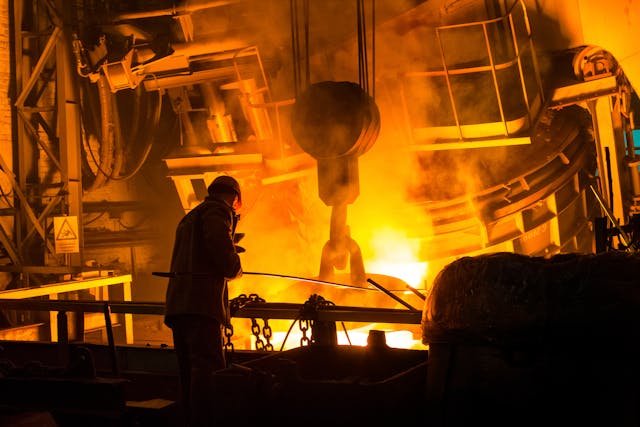
5 Natural Heat Sources That Can Decrease Business Expenses
Table of Contents
As businesses strive to reduce their operational costs and become more sustainable, exploring natural heat sources can be a smart strategy as part of minimising energy costs.
With inflation rates surging continuously, the energy crisis has become a major contributor to the cost-of-living crisis affecting people and businesses.
By harnessing renewable energy for heating, businesses can not only save money but also contribute to environmental conservation.
In this article, we’ll explore 5 natural heat sources that can help decrease business expenses and their associated benefits.
1. Biomass Heating
Biomass heating offers businesses a low-carbon, cost-effective way to heat their premises while contributing to sustainability. Assessing the specific needs and resources to determine if biomass heating is a suitable option for your business is vital before switching.
- Benefit: Biomass heating utilizes organic materials such as fire wood logs, chips, pellets, or agricultural residues. It’s cost-effective and carbon-neutral. These biofuels are sourced from sustainable forests, where every tree removed is replaced, ensuring a renewable supply.
- Cost: The cost of biomass fuel and the installation of a biomass boiler. For suitability and cost assessments, it’s best to speak with a local biomass heating provider.
2. Solar Energy

Solar energy has emerged as a leading choice for commercial renewable energy, thanks to its accessibility, efficiency, and increasingly affordable technology. Harnessing the power of the sun to generate electricity, solar panels offer a sustainable solution to meet business energy needs while reducing reliance on traditional power grids and cutting costs.
- Benefit: Solar energy is abundant, renewable, and free. Installing solar panels can significantly reduce electricity bills.
- Cost: The initial investment for solar panel installation, but the long-term savings outweigh the upfront costs. It’s best to consult a local solar panel provider.
3. Geothermal Heat Pumps
Heat pumps move warmth rather than making it, so they can be about 25% less expensive to run than a gas boiler. Pressure and temperature are key to the function of a heat pump. They work in any climate by gathering heat from outside sources like air, earth, or water.
By compressing the fluid, the temperature is increased providing heat to the central heating.
- Benefit: Geothermal heat pumps use the Earth’s natural heat to provide heating and cooling. They are highly efficient and require minimal maintenance.
- Cost: Installation costs can be higher, but the energy savings over time make it a worthwhile investment. To get clarity, consult a local heat pump expert.
4. Waste Heat Recovery

Businesses can capture waste heat from machinery, furnaces, or other industrial equipment and use it for process heating. For example, preheating water or air for specific manufacturing processes. This reduces the need for additional energy sources (such as natural gas or electricity) for heating.
- Benefits:
Cost Savings: Utilizing waste heat reduces the need for purchased energy, leading to cost savings.
Carbon Emissions Reduction: By using waste heat instead of fossil fuels, businesses contribute to environmental sustainability.
Competitive Advantage: Companies that adopt waste heat recovery gain a competitive edge by demonstrating commitment to energy efficiency and climate action.
- Cost: Initial setup costs for heat recovery systems.
5. Wind Energy

In the realm of residential renewable energy, wind turbines emerge as a compelling alternative or complement to solar energy.
These systems harness the power of the wind to generate electricity, offering an efficient and sustainable energy solution for business owners.
- Benefit: Wind turbines can generate electricity for heating systems. Businesses located in windy areas can benefit from this renewable resource.
- Cost: Wind turbine installation costs.
In conclusion, businesses can explore these natural heat sources to decrease expenses, improve energy efficiency, and contribute to a greener future. Assessing the specific needs of your business and considering the long-term benefits will guide your decision-making process.
As energy prices rise and technology advances, now is the opportune time for industrial companies and businesses of all kinds to embrace the savings that can be made to stay competitive while being favoured by customers and clients due to the eco-friendly approach that’s taken.
Author Profile
- Online Media & PR Strategist
- Blogger and Educator by Passion | Contributor to many Business Blogs in the United Kingdom | Fascinated to Write Blogs in News & Education I have completed a journalism summer course at the London School of Journalism and manage various blogs.
Latest entries
 BusinessJuly 26, 2024Can you Claim Compensation if you have had a Data Breach?
BusinessJuly 26, 2024Can you Claim Compensation if you have had a Data Breach? BusinessMay 3, 20244 Business-Boosting Benefits of Conversational AI
BusinessMay 3, 20244 Business-Boosting Benefits of Conversational AI CareerMay 2, 2024Employee Performance: How to Enhance Employee Effectiveness and Efficiency
CareerMay 2, 2024Employee Performance: How to Enhance Employee Effectiveness and Efficiency FinanceApril 18, 2024Exploring Cryptocurrency and Bitcoin as Payment Options in Business
FinanceApril 18, 2024Exploring Cryptocurrency and Bitcoin as Payment Options in Business

